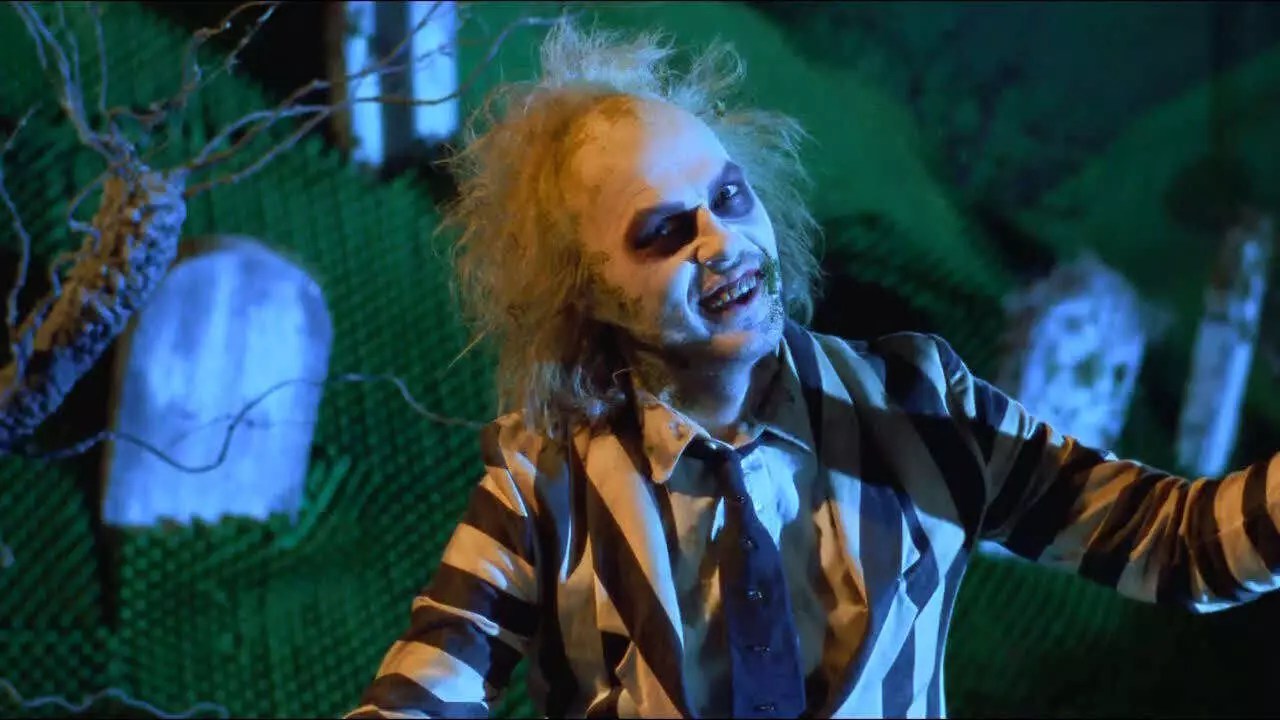The resurgence of the beloved movie “Beetlejuice” has sparked excitement in both cinematic circles and among fans of the original film. The sequel has achieved remarkable success, amassing an impressive $264 million globally within its first two weeks of release. This figure signals not just financial success, but a renewed cultural relevance of Tim Burton’s distinct vision. For more than a decade, the idea of a sequel had swirled in discussions, overshadowed by various concepts, including the peculiar “Beetlejuice Goes Hawaiian.” However, this new installment reaffirms that the quirky charm of the original movie remains alive and relevant in today’s film landscape.
Despite early considerations for a streaming release on Warner Bros.’ own platform Max, the notion was swiftly discarded. According to co-chair Pamela Abdy, such a move would not align with Tim Burton’s artistic vision. Abdy articulated the importance of experiencing Burton’s narratives in a theatrical environment: “You’re talking about a visionary artist whose films demand to be seen on a big screen.” This perspective underlines a critical trend in filmmaking where certain movies require the communal experience of cinema to realize their full impact.
Collaborative negotiations between leadership at Warner Bros. and Burton ultimately led to a strategic decision to prioritize a theatrical release. This insistence stems from a desire to not compromise the cinematic experience that audiences cherish. This decision also illuminated the evolving landscape of film distribution—while streaming has gained traction, theatrical releases still hold a unique emotional and cultural significance.
One of the film’s defining challenges was its budget, initially pegged at $147 million due to high salaries and producer fees. Insights from co-chairs Michael De Luca and Pamela Abdy reveal a pragmatic approach to overcoming budgetary constraints, as they worked with Burton to recalibrate expenses down to $99 million. This adjustment was strategically essential; staying under the $100 million mark made it feasible for return-based deals for cast and crew, ensuring that financial incentives aligned with the film’s performance at the box office.
This calculated adjustment paid dividends, allowing the movie to flourish in a competitive market. With the film exceeding initial projections—over $190 million domestically and showing signs of crossing the $200 million threshold—Warner Bros. celebrates a triumph that was far from guaranteed. The joyous atmosphere within the Warner Bros. studios post-release—a sentiment captured by De Luca’s remark about dancing in the hallways—underscores the contagious energy that a successful film can generate in the industry.
Fans of the original “Beetlejuice” are not only rewarded with the sequel but can also revisit the classic in a new format: the recently released 4K Blu-ray. Additionally, a DVD box set of the animated series appeals to nostalgia, indicating that the Beetlejuice franchise is not only thriving in new endeavors but is also looking back to celebrate its legacy.
The success of the “Beetlejuice” sequel exemplifies how beloved properties can evolve and connect with audiences old and new. By embracing the theatrical experience while adapting to modern financial realities, Warner Bros. has positioned itself as a pioneer that respects the art of storytelling in cinema. The excitement surrounding the film serves as a reminder of the unique magic that happens when creative vision meets audience anticipation.


Leave a Reply